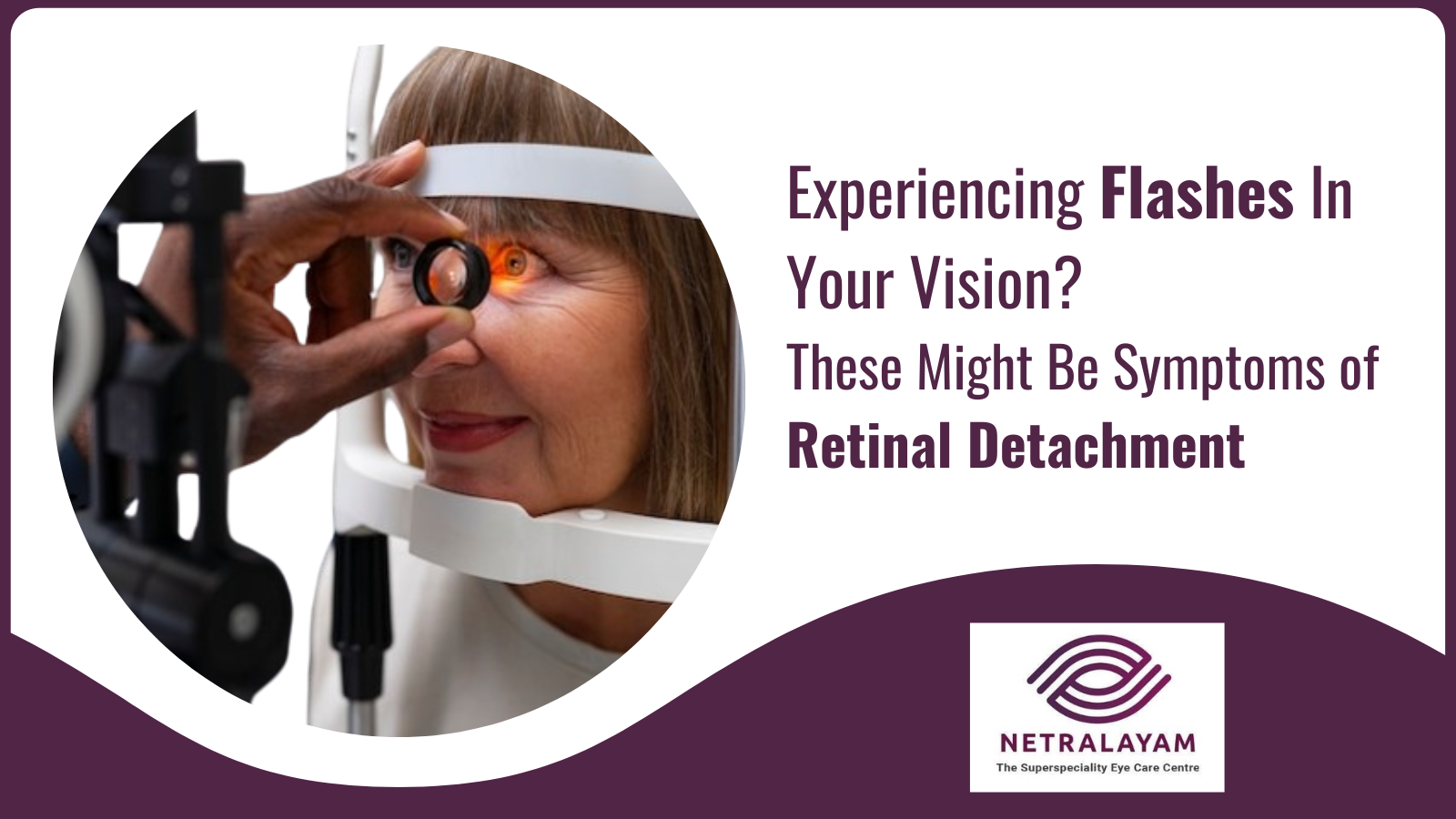Committed to Eye Care with Compassion, Technology and Competency
Committed to Eye Care with Compassion, Technology and Competency

2/13/2024
Occasional threads, flecks, or dark spots drifting across your vision are not usually a cause of concern. However, sudden or excessive eye floaters, light flashes, and darkening side vision require medical attention. These might be the symptoms of retinal detachment, a painless but severe eye condition affecting your retina that detaches from the tissues that support it. The retina is the layer of tissue at the back of your eye that senses light and sends signals to your brain to view things. When it pulls away from the supporting tissues, the blood vessels that carry nutrients and oxygen to your retina are severely damaged.
People suffering from retinal detachment experience a negative effect on their vision. Therefore, they require immediate medical treatment, as untreated cases may lead to blindness. Let's learn more about the risk factors of retinal detachment, its signs, treatment, and more.
Symptoms of retinal detachment can occur abruptly and include:
There are certain risk factors for retinal detachment, including:
Retinal detachment is a serious medical condition that requires immediate attention. Damage to the retina usually requires surgical intervention since, if left untreated, it can negatively impact your vision or even lead to permanent vision loss. It is essential to get regular eye checkups to assess your retina. If you have an increased risk or are suffering from retinal detachment, you should get checkups more frequently. Checkups will help your eye specialist properly assess and treat retinal detachment.
A retinal detachment may heal without intervention. However, it cannot repair and reattach itself. Treatment for retinal detachment includes:
Pneumatic Retinopexy
Scleral Buckle
Vitrectomy
If you notice any sudden vision change or symptoms of retinal detachment, visit your eye specialist immediately. Delaying treatment for retinal detachment may lead to permanent vision loss.
Read Also:
https://www.netralayam.com/blog/retinal-detachment
Laser photocoagulation and cryotherapy are the two alternative therapies for retinal detachment. Both are minimally invasive procedures that can be used alone or in conjunction with surgery for complete treatment.
Laser Photocoagulation
Cryotherapy
Retinal detachment is a severe yet painless medical condition. If you notice any signs of retinal detachment, like a sudden increase in eye floaters, light flashes, or darkening of your vision, get medical care right away. Consult your eye specialist, who may recommend some kind of eye surgery or minimally invasive non-surgical procedure to fix a detached retina. Delaying getting treatment can significantly damage your retina, leading to permanent vision loss.
You are advised to get an eye checkup every once in two years. However, you may need checkups more frequently if you have a higher risk of eye diseases.
Laser photocoagulation is considered the best treatment for retinal detachment since it is minimally invasive and safe, with a high success rate.
Seeking treatment for cataracts, retinal detachment, or any other eye-related concerns? Our team of skilled specialists in Kolkata is here to help. Our renowned eye care centre is committed to providing comprehensive solutions using advanced technology at affordable prices.
Don't delay, schedule your consultation with Netralayam today for expert care and peace of mind!
Comments are closed
